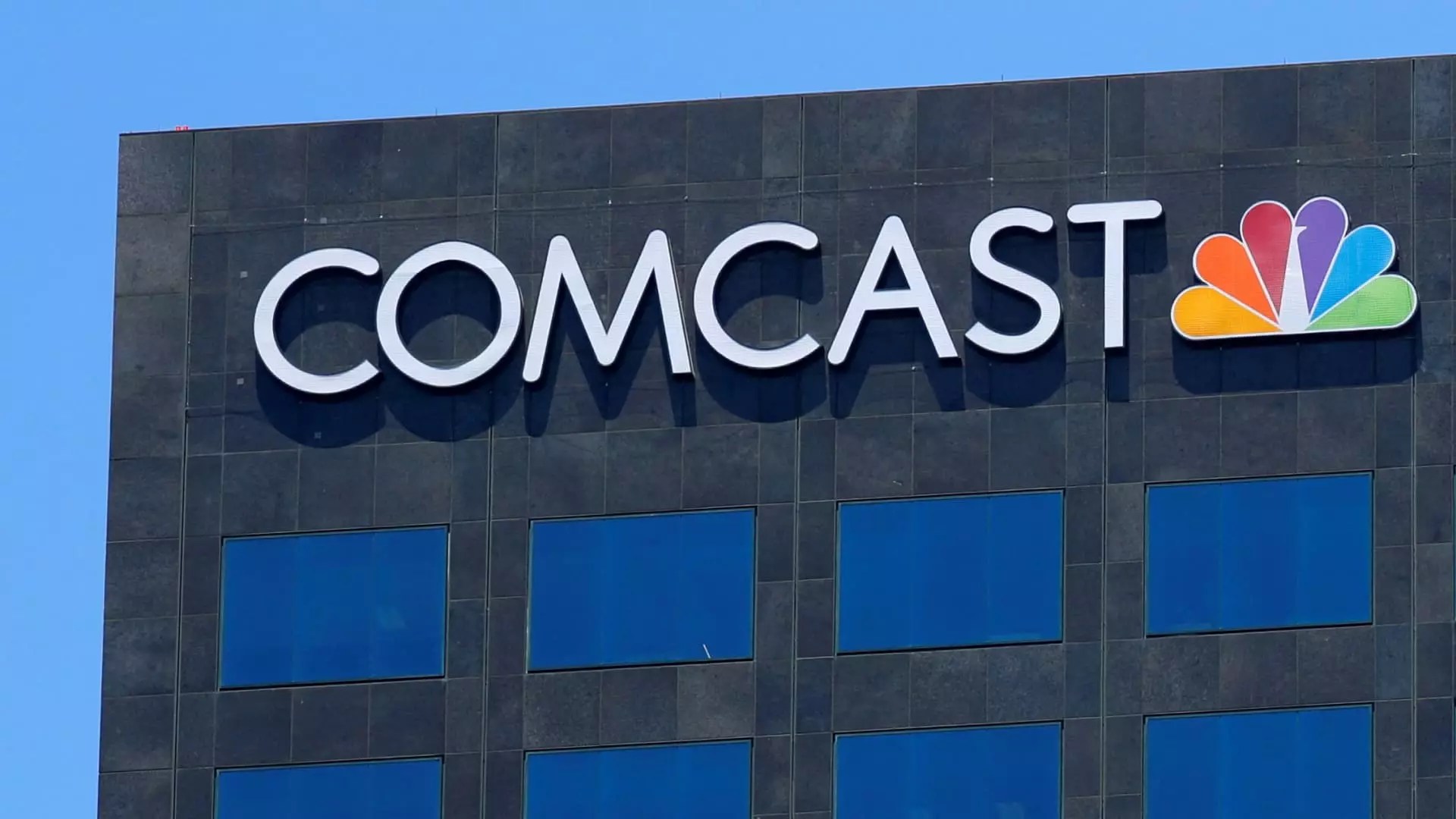The media landscape is evolving at an unprecedented pace, and Comcast is taking significant steps to adapt to this transformation by announcing the impending spinoff of its cable network channels. This strategic move, as reported by CNBC, reflects the company’s ongoing response to the changing preferences of consumers, particularly in light of the trend towards streaming platforms and away from traditional pay television models.
As countless consumers continue to abandon traditional cable bundles in favor of more flexible streaming options, Comcast’s decision to spin off its cable networks is not only timely but also potentially transformative. The spinoff, expected to take approximately one year to finalize, will allow Comcast to create a new entity led by industry veteran Mark Lazarus, currently the chairman of NBCUniversal’s media group. This leadership change indicates a clear intention to reposition the cable networks for future growth, either through potential mergers or independent sales to interested parties, including private equity firms.
This significant decision underscores the urgency with which Comcast is attempting to pivot amid the increasing popularity of platforms like Peacock, which the company has been vigorously enhancing in recent years. The spinoff aligns with a broader shift in the media industry, where companies are rediscovering the necessity for agility and adaptability in their business models.
The new entity that will emerge from this spinoff will have a leadership team that is both experienced and strategically aligned with the goals of the new company. Alongside Mark Lazarus, Anand Kini will assume the role of Chief Financial Officer and operating chief, ensuring sound financial management as they navigate this new chapter. Importantly, despite stepping away from an active role in the new company, Comcast CEO Brian Roberts will retain a voting interest, signifying his ongoing influence over strategic directions.
In tandem with the spinoff, there are notable shifts within Comcast’s own structure. Donna Langley is set to lead NBCUniversal Entertainment and Studios, while Matt Strauss will take the reins at NBCUniversal Media Group, overseeing vital components such as sports, ad sales, and distribution. These appointments reflect a broader intention to galvanize existing teams to thrive in a media environment increasingly defined by streaming services and consumer-driven content.
One of the most intriguing aspects of the spinoff is its tax-free nature, which is expected to benefit shareholders. The share structure of the new entity will mirror that of Comcast, indicating a seamless transition aimed at minimizing disruption in the short term. As Comcast continues to outperform in media revenue — reporting a near 37% increase in the third quarter, primarily due to coverage of the Olympics — the cable networks remain vital profit centers. However, the acknowledgment that without such events, revenues are only marginally increasing creates a backdrop of urgency for the spinoff.
The news has already led to a positive reaction in the stock market, with shares of Comcast rising more than 2% in after-hours trading. This reaction underscores investor sentiment that the spinoff may unlock value within Comcast’s existing assets, allowing both the parent company and the new entity to pursue focused growth strategies.
As Comcast prepares for this major transition, questions around the future of its remaining assets linger. Both NBC and streaming service Peacock will remain under Comcast, reflecting a strategic choice to retain core functionalities that may yield synergies with their broader content distribution strategies. However, formal discussions regarding ongoing collaborations between networks such as CNBC, MSNBC, and NBC News are yet to commence, leaving the door open for potential strategic realignments.
The evolving media environment means that while cable networks have historically been cash cows, they must refine their approaches to sustain profitability amid cord-cutting trends. This spinoff represents not just a structural change for Comcast but also an opportunity for all stakeholders to recalibrate their operations in alignment with modern consumer preferences.
As Comcast moves forward with its spinoff, the industry will be watching closely. This decision could signify a pivotal moment, not only for the company itself but also for the cable network sector as a whole, drawing attention to the necessity for adaptive strategies in the face of relentless technological and consumer shifts.


Leave a Reply